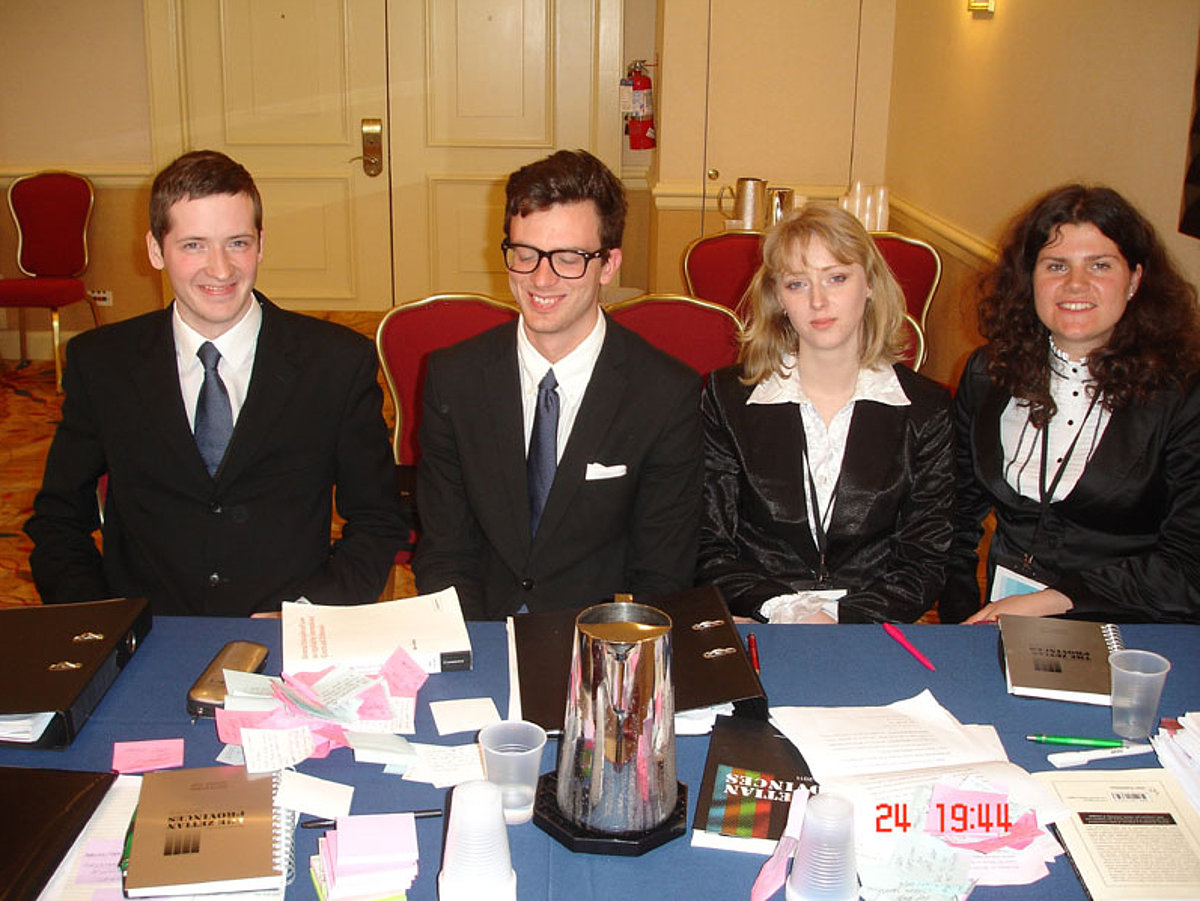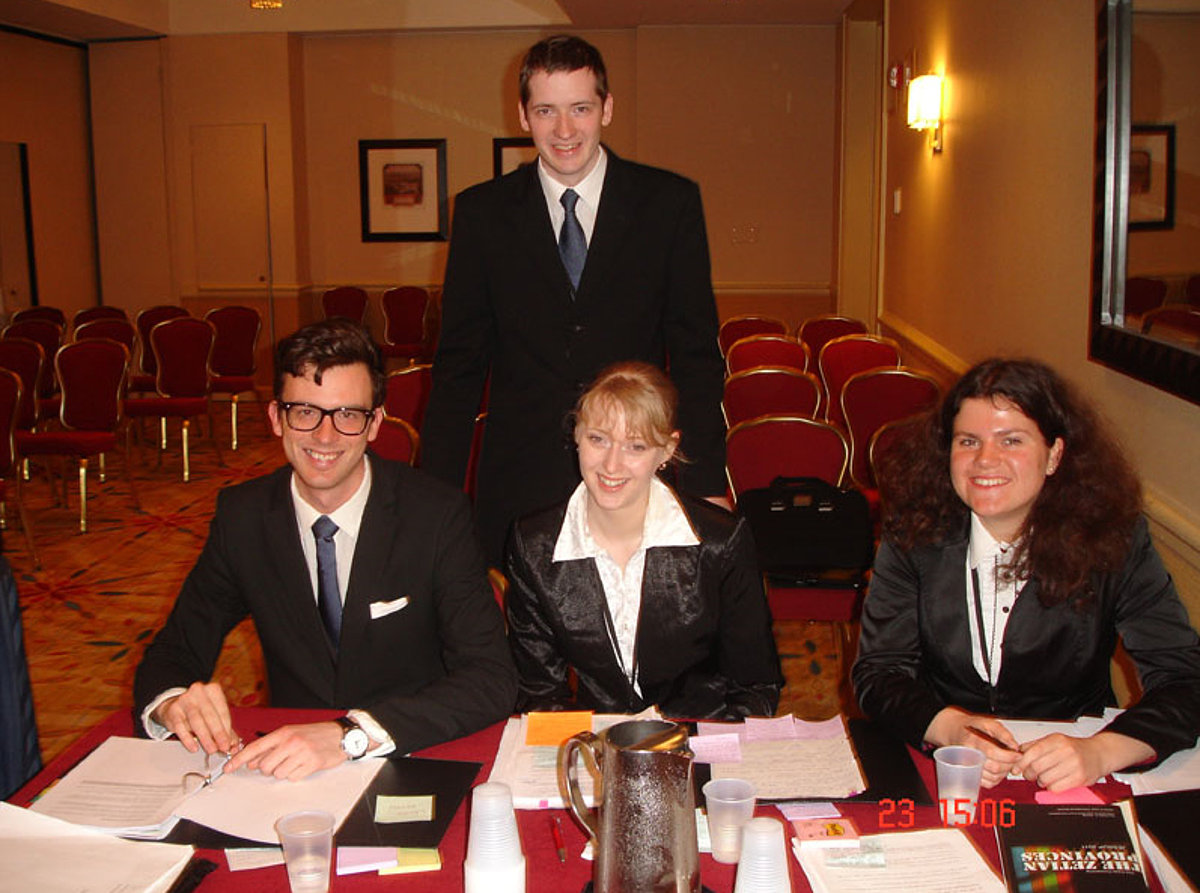
This year, Latvia was represented by the UL Faculty of Law Team. The Team members were: Reinis Odiņš and Vladlena Rudusāne, the sixth place winners of the European Law Moot Court Competition 2010, Mārtiņš Dambergs, who placed second together with his teammates in the Central and East European (European Law) Moot Competition 2010, and Anastasija Zankoviča. Vladlena Rudusāne is a third year student of BA study programme, while the rest of the Team are first year students of MA study programme.
Overall, approximately 650 universities from around the world participated in the Competition, yet only about 120 teams representing eighty countries advanced to the international rounds in Washington. First, all teams played four preliminary rounds, leading to the selection of 32 best teams, who further competed for the Jessup Cup. The Latvian Team ranked behind the Indian colleagues with a decent score in the first round. However, in the second round it managed to outpace the Brazilian Team and defeat the Chinese and Turkish Teams by an overwhelming score. Thus, the Latvian Team attained the 30th place, qualifying for the run-off rounds, where it faced one of the teams representing Australia. Even though the Latvian Team was not able to continue competing for the Jessup Cup, the 30th place among the world’s law schools is a very good achievement.
This year, the University of Sydney (Australia) won the Jessup Cup, after defeating Columbia University (USA) in the finals.
From September to January, the applicants had to prepare the claimant and the respondent countries’ positions of the case in a fictional dispute, afterwards representing the fictional countries before the United Nations International Court of Justice at the international rounds in March. The goal was to resolve disputes between countries on the use of unmanned drones in anti-terrorist operations, the legality of the traditional headscarf ban and the international corruption issues. The topicality of these issues is confirmed by the US unmanned drone attacks on Taleban militants in Pakistan, the restrictions of Muslim head covering in a number of European countries, and the alleged corruption in Riga City Council regarding the procurement of Mercedes buses.
Alongside the academic activities, participants had an opportunity to actively engage in social life, with one of the highlights being the National Dress Ball, which the contestants attended dressed in their national costumes or attire representing their country.
Translated by students of the professional study programme Translator of the University of Latvia.
Translated by students of the professional study programme Translator of the University of Latvia.

 CONFERENCE
CONFERENCE